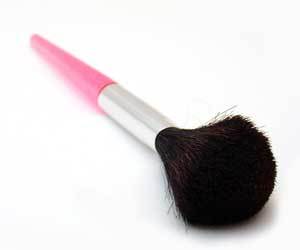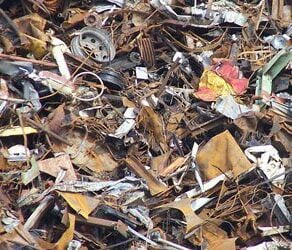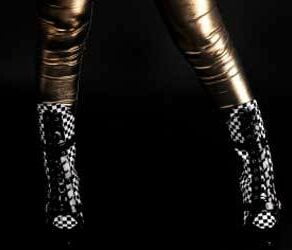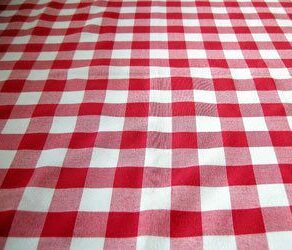
Table of Contents:
Makeup brushes can become coated not only with makeup residue, but also with body oils and dead skin, making them havens for bacteria that will decrease the life of your brush, negatively affect the proper application of makeup and can also cause skin problems and possible infection. It is recommended that you clean your makeup brushes after each use and that you give them a thorough cleaning at least once a week.
What You Will Need:
- Baby wipes
- Mild shampoo
- Tea tree oil
- Warm water
- Sink or small bowl
- Dry towel
The Cleaning Process:
- After each use, your makeup brushes should be wiped with a fresh baby wipe. This will help reduce build-up of make-up residue and oils.
- Once a week, fill your sink or small bowl with a couple of inches of warm water (depending on how many brushes you have to wash) and add a capful of shampoo (about a tablespoon) and 3-4 drops of Tea Tree oil (available at most drug stores and beauty supply stores, such as The Body Shop, and work into a sudsy mixture.
- Place your brushes in the solution and gently rub the bristles between your fingers for at least 30 seconds for each brush.
- Rinse each brush thoroughly in warm water, making sure to get all shampoo residue off.
- Pat the brushes dry with the towel, then lay them flat on the towel, reshaping the bristles, and keep them in a warm, dry location to finish air-drying completely. You may need to reshape the bristles on the brushes so that they retain their proper shape after they dry.
Additional Tips and Advice
- DON’T try to boil your brushes to sterilize them. There is never any need to boil your brushes and doing so could actually ruin them.
- Many professional beauty salons and websites offer cleaning products specifically designed to clean your make-up brushes. While we don’t feel there’s anything wrong about using these products, the shampoo/tea tree oil mixture works quite well and is much less expensive than many of the specialized products for sale.
- If your makeup brush doesn’t come clean even after using the above described method, it may be time to replace your brush.
- It is generally not a good idea to share makeup brushes as it is an easy way to also share bacteria that can lead to infection.
- When washing your brushes, avoid scrubbing them too harshly or you may loosen the bristles.
- Be sure to check any literature that came with your makeup brushes regarding any specialized or recommended methods of cleaning.
- Make sure the shampoo you choose to use is for normal hair and does not contain conditioner. Daily clarifying shampoos are a good choice.
- Don’t skip the Tea Tree oil—it is a great anti-bacterial, anti-fungal agent. Tea Tree oil is an all-natural substance with a host of beneficial uses.
- Make sure your brushes are completely dry before using them again.









I find using rubbing alcohol works very well. Just moisten a lint-free cloth with the rubbing alcohol and thoroughly and gently wipe the brush until there is no more color or makeup left on the cloth, reapplying alcohol as needed and always using a clean part of the cloth. The alcohol dries fast as well, so the brushes are ready to use in no time.
I think I’m going to try using grapefruit seed extract in place of the tea tree oil. It has the same cleaning/disinfecting properties and, in my opinion, a more pleasant fragrance.
Don’t use alcohol! It can dry out and ruin the bristles. You wouldn’t use it to wash your hair!
Q-tips left in your makeup bag make it easy to absorb a dirty bag and using witch hazel to clean brushes works too.
Whatever you use to wash your face, use to clean your makeup brushes. It’s also OK if you wash your brushes with your shampoo. It works well also. Let them air dry on a paper towel. Makeup brushes should be washed every week.
In a medium size bowl with water, add 2 to 3 drops of baby shampoo; let the brushes soak, getting into the bristles with your fingers and air dry. It works really well, plus baby shampoo smells great so your brushes will smell great too.
1.) It’s OK to use face cleaner on your brushes, however if you use a cleanser that has salicylic acid or benzyl peroxide, this will surely dry your brushes out.(Keep that in mind.)
2.) You shouldn’t have to wash your own makeup brushes once a week. In my opinion, unless you are applying a lot of makeup to your skin, such as trying to achieve a full coverage foundation powder or you use a liquid foundation, once every other week is fine. I believe washing them too much could loosen glue or cause the hair to fall out more. No one likes to pick leftover hairs from their brush after achieving that flawless look.
I would suggest to get a spray-on brush cleaner that is all natural and nonirritating to the skin and clean them on hospital grade gauze after each use. Once every other week, wash them with a gentle cleanser that isn’t too drying. Store your brushes in a clean closed container after they are completely dry everyday.
Healthy skin is happy skin,
Andrea
Vinegar, a natural cleaning agent, is terrific for rinsing your brushes out to make sure all the soap & oil gets out. For years they suggested you rinse your hair in a vinegar rinse to get the additional soap out; then just re-rinse. Hair will be softer, too.
I’ve washed my makeup brushes before and I am scared to do it again because it made my brushes all hard once they dried out. So I ended up just throwing them out. 🙁
On a plate, add a little of Dawn dish soap and a little of olive oil (olive oil makes your brushes nice and soft). Dip your brushes one by one, all the leftover pigments will come out. Then, rinse them out and let them air dry. Place them all in a cup FACING DOWN so all the water can drip down. DON’T LAY THEM DOWN; all the bacteria will stay there.
I agree with Melody. I tried the warm soapy water/vinegar methods and just ended up throwing my brushes out (which is a very expensive business).
Then a friend suggested MAC make-up brush cleaner. It’s fantastic. I highly recommend it. You can either buy it at a MAC store/outlet or at MAC online. They have an online store in every country that you can buy Estee Lauder in (it’s a subsidiary of EL).
I like to use a high grade of alcohol in a spray bottle to clean my brushes. I just spritz the bristles and a clean white towel, and gently wipe back and forth, while moving around the towel to make sure there is nothing left. I don’t recommend dipping them in alcohol, as that can loosen the glue and hairs will start falling out. My brushes have never been softer. It doesn’t burn when you use them. The lower the alcohol by volume, but the longer the dry time. The higher alcohol by volume, the whiter your brushes will be (if you have white-haired brushes), and the quicker dry time. I use the highest on a daily basis and the lowest weekly.
I just cleaned my brushes using a different method, and while I was drying my black powder brush, I saw it was leaving a white patch with black spots in it. Is that normal?